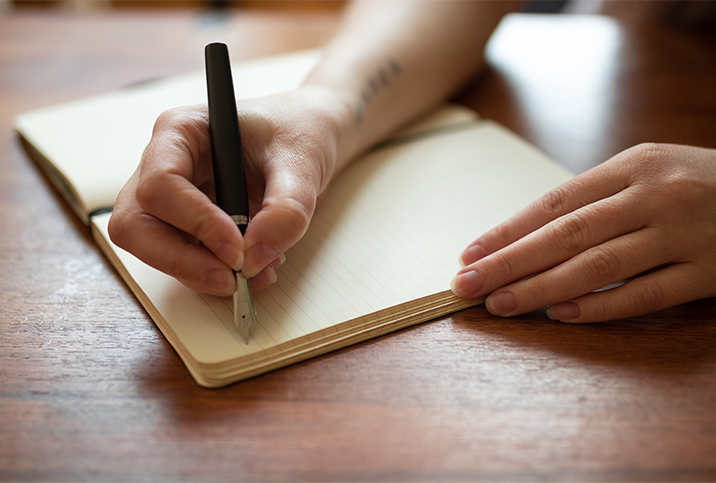Welcome to Giddy's series for Breast Cancer Awareness Month. Each week, we will take a deep dive into an aspect of the breast cancer experience. This week, we'll learn about one woman's experience as a primary caretaker for a loved one with cancer. Is it possible to avoid caretaker burnout? What can we do to also take care of ourselves?


A Guide to Avoiding Caregiver Burnout During Breast Cancer Treatment
As a cancer survivor myself, as well as my title as 'Favorite Daughter' (I'm an only child), I believed caring for my mom during her chemotherapy and mastectomy would be, well, if not "easy," at least manageable.
Caregiver burnout? Who has time for that? I knew what was coming.
I did not. I found myself tired, grumpy and short-tempered. My job as a caregiver is to help my patient. I thought I was prepared, but, over time, I found I needed to do more for myself. If you're a caregiver, you must remember to also care for yourself.
Caregiving comes in many flavors. People need care for long-term chronic illnesses, as well as recovery from short-term injuries or surgery. According to Annie Trance, a clinical social worker at The Ohio State University Wexner Medical Center, caring for a cancer patient is unique.
"There is a level of uncertainty, worry and fear that comes with cancer," said Trance, who also serves as associate director of JamesCare for Life, which offers free supportive programs for cancer patients, their caregivers and family members.
"There are resources for family members and caregivers in particular. We encourage everyone to take advantage of those resources," said Trance.
Preparing to be a caregiver can seem daunting at first, but there are ways to make the transition a little easier.
I got to know Mom's care team by accompanying her to most of her appointments. She has an oncologist and nurse practitioner (NP), a surgeon and physician's assistant (PA), plus she attended meetings with a nutritionist, a pharmacist and a physical therapist.
I found a special notebook and used it to keep track of everything. There are apps available for tracking various details of care, but I like a low-tech notebook. I wrote detailed notes during appointments with members of my mother's healthcare team, and listed the times when she took her pain pills and other medications and did her exercises. I have a page with step-by-step instructions for the proper way to take a shower following surgery. The little black book contains everything.
Before her treatments started, I made sure she was stocked up on a variety of over-the-counter medications that would address potential side effects. We received a list from her cancer treatment center. Items included Pepto Bismol, Imodium and hand lotion, for example. She also received gifts of recommended products from friends who were cancer survivors, such as mints, hard candies, nausea remedies and much more.
The notes I took were a valuable way to remember instructions, write down questions in advance and even keep track of the answers to those questions. Once her treatments started, in addition to tracking when she took her pain medications and other prescriptions, I noted symptoms of side effects, including their frequency. It was helpful to have the written information when I needed to contact her doctors.
The notebook was also a great way to manage our communications and expectations. Did she take her antibiotic? What time did she take her pain pill and when is she due for the next one? I took it with me to every appointment and kept it in her room near her medications.
The first line of defense against worry was Mom's care team. They have on-call professionals available 24/7—and I assume most cancer treatment centers are the same. I felt comfortable calling when I had questions or concerns. I found comfort knowing I was doing the right thing. They reassured me. In some cases, they validated my concerns and the need for follow up.
In addition to connecting with her healthcare team, I sought help in other ways. Mom has many friends who offered assistance, and I've taken it. When people say, "Let me know what I can do," I tend to ask for something specific like a casserole or other food item, and ask what day it's convenient for them to bring it.

We have received amazing dinners. Not having to worry about what to make—or needing to clean up from cooking—is great. I've also asked people to pick up items from the grocery or pharmacy. When people offer to help, say yes.
If financially possible, I advise caregivers to hire help, too. We are fortunate that Mom has a long-time housekeeper who comes weekly. She changes sheets, does laundry, takes care of the bathrooms, dusts, vacuums and washes the floors. If you can't hire anyone, see if the well-meaning friends who keep offering to "help in any way" are available for an hour or two of cleaning. Tackling a room together is more fun and much faster.
I now know that even with great preparation and lots of support from friends, I can still feel tired and overwhelmed—classic symptoms of burnout. When that happened, I went back to a list of resources from previous therapy sessions.
I keep a daily journal. I write for at least 10 minutes every morning. (Sometimes on appointment days, that was impossible.) Writing down frustrations and worries provides me with the chance to take a deep breath and let them go.
I do about 15 minutes of yoga every day, usually before bed. I try to get out for a 20-minute walk every day, too. (Especially when I felt like I wanted to run away, just going for a walk was helpful.)

More advice: Have space for yourself. I moved in with my parents, part-time at first, arriving at their house the day after mom's chemotherapy, and staying for a few days until she felt a little better. After her mastectomy, I stayed with them full-time through the first five weeks of recovery.
I am fortunate to work from home. But I needed space. I gathered a small portable desk/table, invested in a better office chair and cleared the decorations from the dresser in Mom's spare bedroom to stack my reference books. I even bought a luggage rack for my suitcase.
I practice a few other self-care items that are easy to overlook: I try to eat well. We always have fruit on hand and a few healthy snacks. I try to get rest, including napping when she does, since I am often up with her during the night. I make sure I'm drinking plenty of water.
When Mom was first diagnosed, I was unaware of the resources that might have helped me be better prepared for the emotional side of caregiving. I have since discovered videos, online support groups that meet monthly, even free mental health counseling sessions.
I know to journal, walk, breathe, sleep and eat well, but I couldn't help but wonder why I should bother talking to a mental health counselor when I already knew what they were going to tell me.
Amy Rettig, mental health specialist and director of caregiver resources for The James Cancer Hospital and Solove Research Institute at Ohio State, was impressed with my list, but said, "A professional counselor can help you process emotional situations. You'll better understand triggers and learn how to let things go."
Often, caregivers and patients have conflicts that stem from their familial relationship, personal history, communication skills and expectations. Rettig suggested imagining the evolving emotions of life and of caregiving in particular as a series of circles rather than a straight line continuum in chronological order.
"We revisit issues," said Rettig. "Sustaining a habit is work. Getting caught up in expectations can send us to the pit of despair. A personal commitment to emotional resilience is an ongoing effort."
According to Rettig, a good friend who helps you feel listened to is another important resource. Reach out to people in your life and be vulnerable. Talking to others about what you're going through can take a weight off your shoulders.
In addition, Mom and I laugh a lot. We are able to reminisce about funny events from my childhood. When things go wrong, we are able to giggle at the ridiculousness of the situation and not get caught up in expectations.
If you're going to become a caregiver, be prepared. You need to find resources to feel supported. You need to recognize when you feel tired and frustrated and call for help.
When people offer assistance, say yes and give them a specific task. If they don't cook, perhaps they could pick up carryout for you. Perhaps they might visit while you go out or nap.
Watching Mom deal with uncomfortable side effects from the chemotherapy, including digestive issues, a misery-inducing skin rash and neuropathy in all her fingers, was difficult. I had greeted her diagnosis of breast cancer in an almost casual way: I know many women who have survived breast cancer. I believed her prognosis was good.

I just didn't understand how difficult it would be to get through the treatment. And there's a universal truth about caregiving: You suffer with your patient when you can't really help. I've learned the best thing to do is to keep helping myself, so I am better able to help her.
As Trance said, "Cancer is a family disease," and we're in it together.









